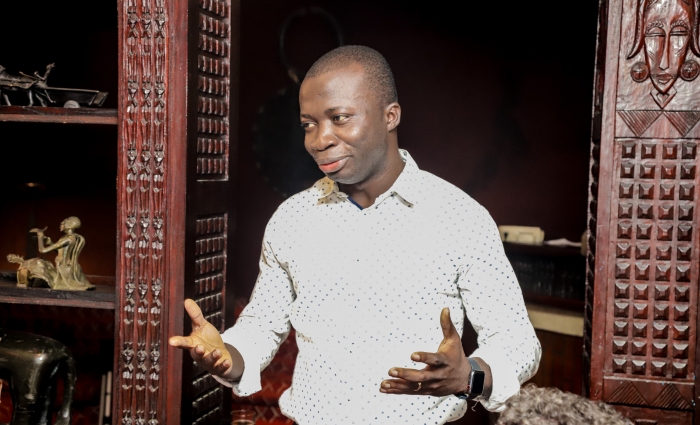Kamtar looking to raise euro 3 million in Q4 2020: co-founder Delas N'dri
Ivory Coast-based startup Kamtar is revolutionising the way logistics is conducted in the West African country.

Ivory Coast-based startup Kamtar is revolutionising the way logistics is conducted in the West African country. Started in February 2018 following a failed delivery, co-founders Delas N'dri and Arthur Thuet struggled with logistics providers during their past experiences. They knew there was something interesting to do with the informal sector by adding layers of additional services such as insurance or customer service. And so Kamtar was born.
Kamtar currently employs more than 40 people in Ivory Coast and Senegal. It works on a weekly basis with several hundreds of drivers and has registered more than 3,000 trucks on the platform, according to the founders.
The company received a funding of euros 600,000, as well as support from the French investment holding company Saviu during its launch. Today it is looking to raise euros 3 million for Q4 2020.
Transport is a real pain in Africa, and Kamtar's mission is to finally make it easy. How has Kamtar made it easy?
Our customers used to have dozens of logistics partners from the informal sector. It was well priced but the struggle was real: fluctuating availability, lack of punctuality, disorganisation, quality of service and so on.
Today, they have one interlocutor: Kamtar. Whether they need to move one kilo in the city or 10 containers to another country, we have the capacity to do it.
What is the scope of using technology for logistics? Is it here to stay?
Technology is very helpful in logistics. Real-time matching, GPS, automated invoicing or online financial reports make you save a lot of time and provide real quality of service to your customers.
However, many of our drivers are illiterate. It naturally makes it very hard to rely on apps. On top of this, a lot of our customers still prefer making a phone call than requesting a proforma through a web dashboard. But everything is changing very quickly. Out tech is here, being improved every day, and it is our role to help the market transition more and more from offline solutions to online ones.
Incorporating technology into traditional logistics and go with the sector’s digitalization is useful, but developing a fully digital solution seems to be a bit presumptuous for now.
What is the current number of vehicles already registered on the platform?
More than 3,000 in Ivory Coast and Senegal.
What were the initial hiccups or challenges faced in transporting goods? Were they market challenges, human resource challenges or infrastructure challenges? Please mention any other challenges too.
Before drivers start paying attention to your small innovative startup ‘that is going to change the whole industry’, you need to send them business. Less talking, more acting. It takes time before they consider you as a long-term partner and trust you enough to give you flexibility on payment or ability to negotiate on prices.
Building those trustful relationships was long and tiresome but we are starting to see the first signs, which is great!
We know we bring something useful to our customers. The worst thing that can happen is having a community of partners that do not respect your standards of quality, which destroys your value proposition. If you manage to involve your partners in that long-term goal by training them and showing them the money, very few things can happen to you.
That being said, doing logistics is always risky: accidents, borders, delays are daily issues that you need to deal with, especially when you handle several hundreds of operations per month. But so far so good, we always find solutions that accommodate our customers and our drivers.
How did Kamtar overcome these challenges or did business circumventing them?
Always communicate with your partners, always have a plan B and never oversell what you are able to accomplish to your customers. Being transparent and fair is a strong safety net.
For our daily issues, we partnered with Ascoma, an African insurance broker, in order to limit the risk for our customers and ourselves.
Going further, what is your funding and expansion plan?
We are currently profitable and growing which allows us to wait a bit for our series A round in order to do it in the best possible conditions with very strong metrics. We are looking at a Euros 3M round for Q4 2020 in order to expand geographically and finance our working capital needs that are becoming bigger and bigger every day!
What is the scope of growth you see in technology and logistics in Africa in the next, say 10 years?
I believe that door-delivery will start annoying both sellers and customers! We just launched our network of pick up points across the country, powered by proprietary technology and we are convinced that in 10 years from now, most of the e-commerce products will be waiting for their owners in brick-and-mortar shops.
As for haulage, I’m not sure things will be fundamentally different. But I believe that the adoption of digital will make Kamtar employees’ lives much easier than it is today!


